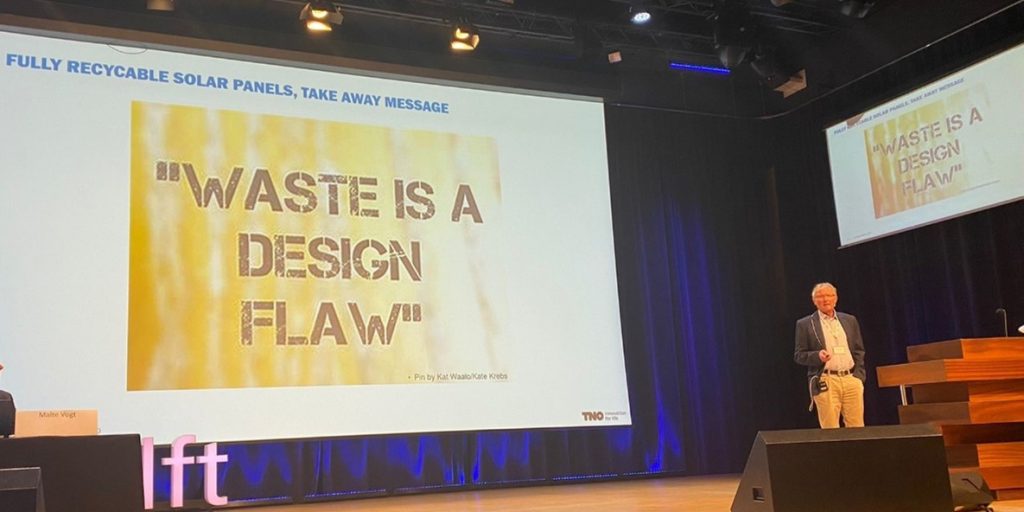May 2023
With the phrase “waste is a design flaw” in mind and a study on economic viability for recycling of end-of-life PV panels [1], PILATUS will check how to manufacture mini-modules from circular materials and test them. The first milestone of PILATUS (MS6 “Highly circular materials to be evaluated in T6.2.2 identified with purchase or acquisition routes defined”) was reached in April 2023. For this first PILATUS milestone, TNO compiled a ‘Bill of Materials’ for module manufacturing based on a selection of biobased and circular PV materials. The materials are used for manufacturing mini modules and testing material compatibility and durability. At a later stage, process compatibility with the pilot technology will be developed together with partner CSEM. Commercially available glass plates and backsheet will be sourced by TNO. A criterium for circularity addresses the application of closed loop and mono design materials. For the project the following materials were chosen:
- Bio-based encapsulant [2] by PADA to be tested and evaluated on module level;
- NCR will provide wafers made with recycled silicon offcuts from their own mono-Si process;
- TNO will source ‘Mono designed’ circular backsheet;
- As an alternative to backsheet a glass rear sheet will be used.
With the selected and sourced materials PILATUS partner TNO will manufacture mini-modules comprising 1 to 8 cells to demonstrate and evaluate compatibility of the single materials and durability. A test series in accordance with the IEC 61215 test protocol for damp heat and temperature cycling will be executed. The final goal for this is to develop processing compatibility with the pilot technology developed in PILATUS. In addition how the highly circular BOM impacts the overall LCA of the PV panels and the impact on resource availability will be evaluated.
References:
[1] Balancing costs and revenues for recycling end-of-life PV panels in the Netherlands, TNO 2022 R10860, available at: https://circulairekennis.nl/wp-content/uploads/2022/12/O027-Kosten-en-opbrengsten-bij-recycling-PV-panelen.pdf[2] Next generation of polyolefin plastics: improving sustainability with existing and novel feedstock base, Alexander Reznichenko & Ali Harlin, SN Applied Sciences volume 4, Article number: 108 (2022), available at: https://link.springer.com/article/10.1007/s42452-022-04991-4

